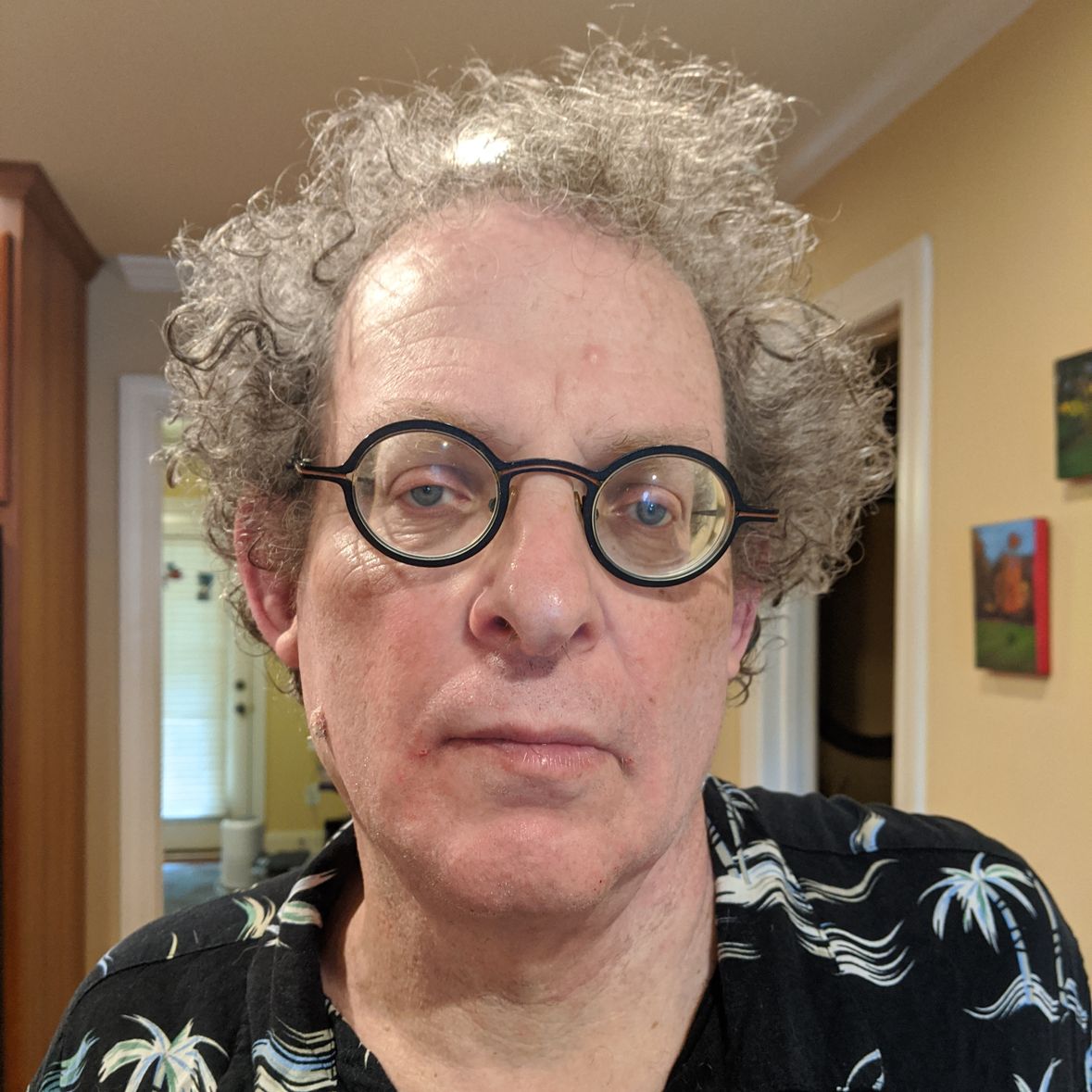INSIGHTS
Crying Time
By Peter Eisenstadt
When I was a lad, around ten years old or so, my brothers and I went to Hebrew school in a Reform congregation. In due course we learned the words to the great Chanukah song, Ma’oz Tzur. Our favorite words were, in the rather infamous English translation, “children of the martyr race, whether free or fettered.” We liked it because we always sang “whether free or feathered” and we thought ourselves quite witty. We didn’t pay as much attention to the “martyr race” bit, but as a two-word expression of Jewish history as constituting little more than a continuous loop of persecutions, expulsions, and exterminations, it’s hard to beat. This is often called the “lachrymose conception of Jewish history.”
I’ve been thinking a lot about lachrymose Jews recently, primarily because in the spring I attended a conference at the Jewish Studies Department of the University of Pennsylvania on “The Scales of Suffering: Neo-Lachrymosity and the Writing of Jewish History.” It was an excellent, thought-provoking conference, covering the entire scope of Jewish history, and I learned much from it. But about that word, lachrymose. It is not a familiar word. I must confess I have never heard it used outside of the context of Jewish history. The OED states it occurs between 0.01 and 0.1 per million words, a relatively rare word, defining it as “tending to provoke tears of sorrow; mournful, gloomy, sad, sometimes exaggeratedly or sentimentally so.” Generally it implies that one is being excessively, perhaps performatively weepy.
The phrase about lachrymose history was coined in the late 1920s by Salo W. Baron, a master of polyglot erudition, and unquestionably one of the greatest of Jewish historians. For Baron, many previous Jewish historians, particularly when writing about the medieval period, had reduced Jewish history to a casualty report of dead, wounded, and missing. Instead, he argued, historians needed to focus more on ordinary economic, social, and political realities, rather than only concentrating on Jewish tragedy. And through many, many, volumes, this is just what Baron did.
Baron undoubtedly opened a new vein of historical research. But outside of the circle of professional historians, I don’t think it ever really caught on. For most Jews the view of Jewish history remained and remains unrelievedly lachrymose and catastrophizing. In his classic book, Zakhor, Yosef Hayim Yerushalmi (a Baron student) argued that for Jews seeking a connection to their past, Jewish memory has always been more important than Jewish history. This assertion has been challenged, but there is no doubt that Jewish memories of the past, what might be called popular Jewish history, largely remains a “four-hanky” history, a history of 70 CE, 1492, and 1933, and then 1948. It is a view of history that always anticipates the worst. After every so-called Golden Age; an Inquisition. In every haven, a potential holocaust. Don’t trust good news. Only bad news counts.
But since the end of World War II there have been two powerful leavening counternarratives: the status of Jews in the United States, and the state of Israel. In this view, in the United States, Jews found a corner of the diaspora where they were truly safe, fully accepted, where, as Joshua Leifer has written, if never eradicated, antisemitism was reduced to a “low ambient hum.” As for Israel, Jews finally had their own army. But there is a widespread sense that these so-called golden ages have gone sour. The US is perceived as a less safe place, where physical violence against Jews is becoming more common, as the incidents in the Tree of Life synagogue; Boulder, Colorado; and Washington, D.C. indicate. As for Israel, its army did not prevent the killing and hostage-taking of October 7th unavoidably bringing back thoughts of massacres of Jews past. And if Jews can’t be safe in Israel, where can they be safe? With the perception of increased danger, the lachrymose view of Jewish history is making a comeback.
Our views of history are always profoundly shaped by our current situation. Illiberal times call for illiberal histories, histories that emphasize Jewish danger, anti-Jewish hostility, histories without happy endings. They are histories in which Jew hatred is pervasive and protean, never dissipating, but always just taking on new and newly menacing guises. But the problem with viewing your history as simply one of perpetual victimhood, besides its one-sidedness, is that it tends to reduce actors to passive recipients of whatever is meted out to them. It breeds resignation and fatalism, and robs you of the ability to imagine a future different from the past or present. Louis Namier, a Polish Jew who became in the 1930s and 1940s a noted historian of Hanoverian England, was once asked why he didn’t study Jewish history. Because, he said “there is no modern Jewish history. There is only a Jewish martyrology.”
Namier was a passionate Zionist. Many Zionists thought that with the creation of a Jewish state, Jews would finally “enter into history.” But the problem with Jewish history was not in our diasporas, but it was ourselves. If the belief was that Jewish sovereignty meant that Jews could live more or less independent of other peoples, it was a pernicious fantasy. It is a fantasy that is, alas, alive and well in Israel today.
I am primarily a scholar of African American history. If there is another people whose history is as tragic as that of the Jews, surely it is theirs. But for the most part, they have resisted writing lachrymose African American histories. Perhaps this is because their sense of oppression was too vivid and immediate to think of retelling their story as simply one of domination and subservience. Instead, in most Black histories, though oppression wrought its ravages, this was countered by a furious and creative resistance and resilience. The quest for emancipation, equality, and fair treatment was balanced by the need to preserve autonomy and cultural and social coherence. (This was similar to Baron’s understanding of Jewish history as well.) “Can a people,” asked novelist Ralph Ellison in 1944, complaining about a book that downplayed Black creativity, “live and develop for over three hundred years simply by reacting?” At the same time there was an understandable wariness about their acceptance by the broader society.
“Progress” as we are learning again in the America of 2025, is never irreversible. Baseball great Jackie Robinson titled his 1972 autobiography I Never Had it Made as a warning against that sort of complacency. (In this regard let me recommend Tears of History: The Rise of Political Antisemitism in the United States, by the distinguished French sociologist and historian Pierre Birnbaum. Its title is an explicit reference to Baron and lachrymosity.) But let us also keep in mind the words of the great African American man of letters and activist, James Weldon Johnson, writing in the 1930s and challenging overly despairing views of the then-current situation of African Americans, labeling them “apostles of the obvious.” Calling on African Americans to “realize that prejudice is an actuality” was to place an “emphasis on what has never been questioned.” Similarly, hatred of Jews will always be with us. But to see this as the most important development for Jews over the past two years, is, I fear, to make many Jewish leaders into “apostles of the obvious.”
I would argue that the most dramatic change in the Jewish world since October 7 is not increased hatred of Jews but an unprecedented torrent of criticism directed at the current Israeli government and its would-be defenders. This can be unnerving and frightening. This withering condemnation is increasingly difficult for Israel’s defenders to corral or dismiss as emanating from either the right or left lunatic fringes or simply tag it as antisemitic. The Gaza War, with its staggering totals of Palestinian death and carnage, with credible accusations of war crimes, and much talk of genocide from sober and cautious students of the conflict, has rendered Israel’s defense of its actions as threadbare and empty.
Let me state clearly that not all of this criticism has been fair or nuanced, and some it crosses the line into Jew hatred. But the impulse to label all strong criticism of Israel as inherently antisemitic is failing because people can see the horrors of Gaza and the West Bank with their own eyes. And despite the effort of pro-Netanyahu organizations like AIPAC to hold the line, critics of Israel have never had more legitimacy in mainstream American politics. The most striking recent instance of Israel’s critics coming in from the cold has been the victory of the pro-Palestinian Zohran Mamdani as the winner of the mayoral primary of the very Jewish Democratic Party in the very Jewish city of New York. Even given Mamdani’s evident political skills, I doubt, pre-Gaza War, he would have had much of a chance.
Let me propose another way of looking at Jewish history, as an alternative to de-lachrymosed or re-lachrymosed versions. It is an older, probably the oldest view of Jewish history, that of the Deuteronomist. To summarize it briefly, it holds that if something bad happens to the Jews, it was because the Jews screwed up. This was of course standard Jewish theology for many centuries. It has fallen from favor in part because of the Holocaust, when even many Orthodox rabbinic authorities concluded that the punishment grotesquely and horrifyingly, overwhelmed whatever the original crime might have been. (Shaul Magid has written very movingly about one such rabbi, Kalman Shapira, murdered in the Warsaw Ghetto.) A little of the Deuteronomist goes a long way, but maybe just a little is what we need. It is a time for self-reflection and self-judgment, perhaps spurred by criticism by others. Prosecution is not always persecution. Defend yourself against attacks you think unfair, but don’t be defensive. This is a time for a necessary rethinking of the meaning of Judaism, the future of Israel, and the destiny of the Jewish people.
The goal of Zionism was to empower the Jewish people. But some of Israel’s defenders have now developed a lachrymose view of Israeli history, or a lachrymose view of Jewish power, in which Israel is now very, very strong, but is still in a state of perpetual victimhood. Nothing it does can staunch the unappeasable hatred of Arabs and Palestinians – and others, such as Iran’s ayatollahs – for Jews. Israel has been trapped by the fantasy that power solves all problems. Israel strikes me as being in the same position as Michael Corleone at the end of that all-American fable, The Godfather, all-powerful, but after having rubbed out and eliminated everyone and everything in its path, is hated, unloved, and almost all alone. But this is seen as inevitable, because everyone always hates the Jews. But it’s not. Sometimes it is necessary to stand alone against the world. But sometimes the world has a point. To paraphrase another postwar American ethnic fable, while “it’s not a shame to be a pariah, it’s no great honor either.”
Somebody mentioned to me after the conference in the spring that he hoped never to see the word lachrymose again. I am sure that readers of this essay agree, but let me call attention to it one more time, or at least to its close cousin, lacrimosa. The Lacrimosa is the name of a section of a famous medieval Catholic prayer, set memorably to music by such composers as Mozart, Berlioz, and Verdi. I’ll leave out the bits about Jesus:
| Lacrimosa dies illa Qua resurget ex favilla Judicandus homo reus |
. |
Full of tears will be that day
When from the ashes shall arise
The guilty man to be judged
This is a poem about the sadness of the Day of Judgment, the sadness and terror of being judged. If this is a Christian motif, the physical resurrection and judgment of the dead, it is also a very Jewish idea, one borrowed from the Pharisees. Since October 7, there has been what seems like a never-ending Day of Judgment, a perpetual Yom Kippur. And whether it is the Lacrimosa or the Unetaneh Tokef, the prayers are a call to judge yourself and don’t wait for God to do it. The sadness in much of the Jewish world is no longer just about what other peoples have done to us, but what we are doing to other peoples. It is indeed a time for lamentations over ruined cities and lost lives. But it is not the time, and it never is the time, for the disabling self-pity, the abdication of moral responsibility, that is Jewish lachrymosity.

Peter Eisenstadt is a member of the board of Partners for Progressive Israel and the author of Against the Hounds of Hell: A Biography of Howard Thurman (University of Virginia, 2021).






Leave A Comment